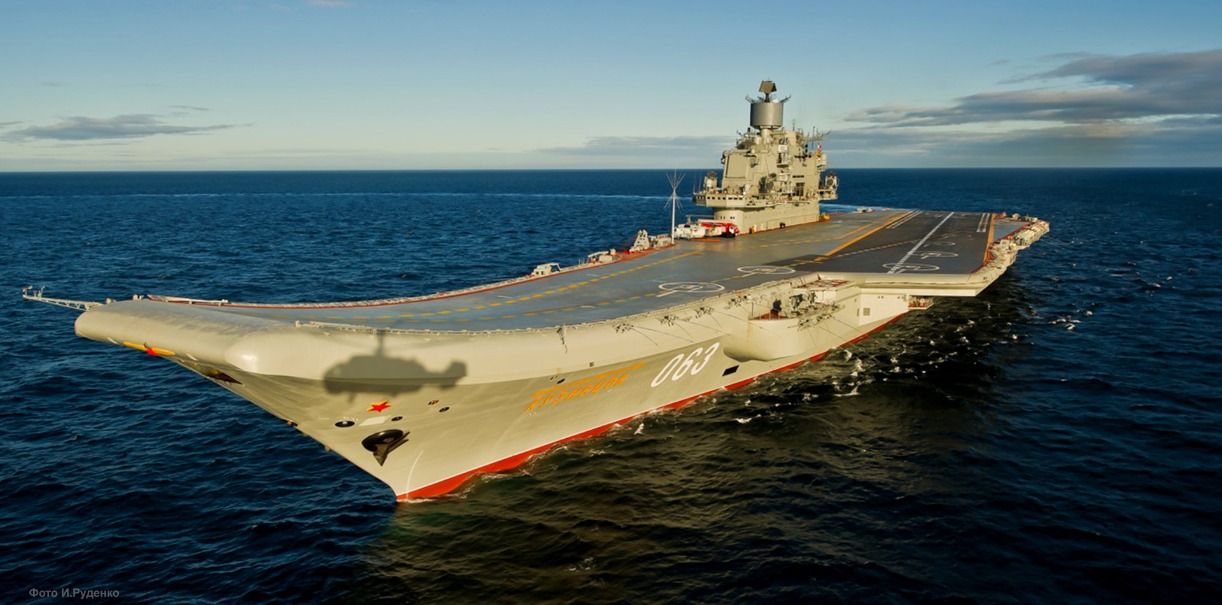Russia's Aircraft Carrier Woes: The Endless Disaster Saga of Admiral Kuznetsov
Russia's sole aircraft carrier, the Admiral Kuznetsov, continues to face a series of setbacks that keep it out of commission. Plagued by mechanical failures, construction defects, and accidents—including fires and a crane crash—the carrier has been sidelined for years.
Summary and What You Need to Know: Russia's sole aircraft carrier, the Admiral Kuznetsov, continues to face a series of setbacks that keep it out of commission. Plagued by mechanical failures, construction defects, and accidents—including fires and a crane crash—the carrier has been sidelined for years.
-Unlike modern nuclear-powered carriers, Kuznetsov runs on inefficient Mazut fuel, limiting its operational range to just 45 days without servicing.
With resources stretched thin due to the ongoing conflict in Ukraine and international sanctions, Russia appears unable to repair or replace the aging vessel.
-Consequently, the Russian Navy is unlikely to field any new aircraft carriers in the foreseeable future.
-Considering Russia’s inability to properly maintain and service its sole aircraft carrier, its potential prioritization of fielding additional floating airbases seems misplaced.
Ukraine, armed with advanced weaponry delivered by the U.S. and its NATO allies, has launched successful strikes against a number of Russia’s sea-based military systems. Kyiv recently claimed that its military took out the last cruise missile-armed Russian warship on the occupied Crimean peninsula.
If true, this would mark the second time in under eight weeks that Russian ships were damaged by Ukraine. In March, Kyiv announced that Russia’s Yamal and Azov ships were destroyed in another barrage. Clearly, Moscow’s fleet is suffering greatly. Additionally, the Admiral Kuznetsov, Russia’s sole aircraft carrier, continues to float out of commission.
The Admiral Kuznetsov Saga Just Won't End
For some reason, Russia continues to pour resources into maintaining and attempting to update its outdated and trouble-plagued aircraft carrier.
Since its introduction, Admiral Kuznetsov has suffered from a range of mechanical issues and construction defects. It has suffered fires and even a crane crash. In fact, the warship has been sidelined for years due to these issues.
Moscow is continuing to pour the majority of its resources into a prolonged invasion of Ukraine, and it is widely sanctioned by the international community, hampering any real progress on the carrier.
Russia’s sole aircraft carrier is described by the Russian Navy as a “heavy aircraft-carrying cruiser,” capable of carrying twelve Sukhoi Su-27s and sixteen Yakovlev Yak 41-M fixed-wing airframes, in addition to a variety of helicopter platforms.

Unlike its more modern nuclear-powered carrier counterparts across the globe, Kuznetsov runs on Mazut, a petrochemical that gives off a thick, tarry gray smoke that is simply not efficient.
Perhaps most notable, the Mazut-powered Kuznetsov can sail for just 45 days before needing to be serviced. Its nuclear-powered counterparts can operate indefinitely for up to 25 years.
Kuznetsov's lengthy rap sheet of unfortunate events has also influenced its reputation as a failed carrier. During the warship’s first deployment, two airframes were lost due to faulty arresting wiring on deck. A few years later, a fire caused by a welding incident in the ship’s engine room resulted in the deaths of two workers and the injuries of many more.
A floating crane crashed into Kuznetsov’s deck the same year, killing another worker. While dry-docked in 2022, another fire erupted onboard while the heavy cruiser was undergoing repairs.
Obviously, the Kuznetsov will not be set to sail anytime soon. Nor will Russia soon be fielding any other aircraft carriers.
About the Author: Maya Carlin
Maya Carlin, National Security Writer with The National Interest, is an analyst with the Center for Security Policy and a former Anna Sobol Levy Fellow at IDC Herzliya in Israel. She has by-lines in many publications, including The National Interest, Jerusalem Post, and Times of Israel. You can follow her on Twitter: @MayaCarlin.
All images are Creative Commons.


